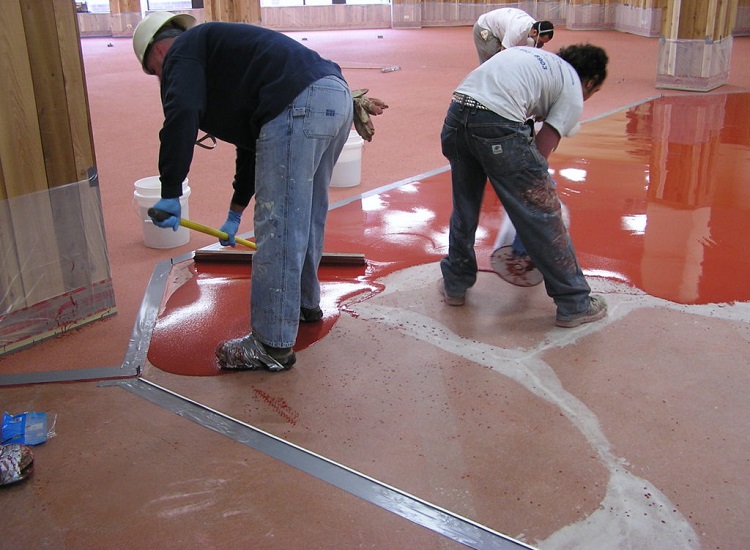
5 Types Of Epoxy Floor Coatings
When considering which type of floor system you wish to use for garages, retail outlets, warehouses, offices, or industrial facilities, an epoxy floor coating is often the choice which is made. Its advantages include durability, resistance to damage, ease of cleaning, and increasingly, the ever-increasing options in terms of its visual appeal, mean it ticks lots of boxes for those choosing a new floor.
Obviously, the choice of epoxy floor coating will be for its benefits, but what many people do not realise is that there actually several types of epoxy floor coating. Rather than ‘one type suits all’, depending on what environment or location it is going to be laid, there are epoxy floor types that are more suitable than others.
Epoxy floor is. It is made from mixing two chemicals, one of which is a resin and the other is a hardener. When they are combined and applied to the floor, the coating which forms is strongly bonded, which enhances its durability. Its ability to adhere to the concrete floor underneath is also an important trait of epoxy floor coatings.
Although some brands might have their own names for specific epoxy floor coatings, we will stick with their generic names, and explain briefly where they are most suitable for use.
Quartz-Filled Epoxy Floors
As the name suggests this type of epoxy flooring sees the epoxy resin combined with quartz grains which are usually stained. When laid, this produces an extremely decorative floor as well as one which is non-slip. For these reasons, you will find quartz-filled epoxy floors in showrooms, hotel lobbies, reception areas, restaurants, and schools.
Epoxy Mortar Floors
This is often regarded as one of the top grades of epoxy floor systems due to it being extremely robust. The epoxies account for almost 100% of the compound, but it also has quartz or graded sand within it. They are especially suitable for floors that are going to be subject to quite a bit of impact from falling objects, and where there are likely to be chemical spillages.
As you might expect this type of epoxy floor is used most often in commercial and industrial settings like warehouses, factories, manufacturing facilities, and large commercial kitchens.
Anti-Static Epoxy Floors
There are many facilities where an electrostatic discharge can be dangerous, especially those that contain highly inflammable materials or liquids, and having an anti-static epoxy floor helps to reduce the risk. It has a special material within its compound which is conductive and thus dissipates static electricity rather than allowing it to build up.
Prime locations for this type of epoxy floor are healthcare facilities, chemical plants, and pharmaceutical manufacturing units.
Self-Levelling Epoxy Floors
This is ideal for laying on floors where the surface is old, cracked, or damaged as it provides a level surface and in effect creates an entirely new floor that looks smooth and polished. This is most commonly used in larger or older factories, warehouses, commercial buildings, and retail showrooms.
Epoxy Flake Floors
We mentioned previously that epoxy floors are also able to improve the aesthetics of the area they are laid on, and by adding flakes to the epoxy resin, this provides another way of doing so. They can be created in various sizes, colours, textures, and shapes and thus every floor created with them is unique.
Prime locations for epoxy flake floors are showrooms, public buildings, schools, and office blocks, but in truth, they can be used just about anywhere that needs a new floor.